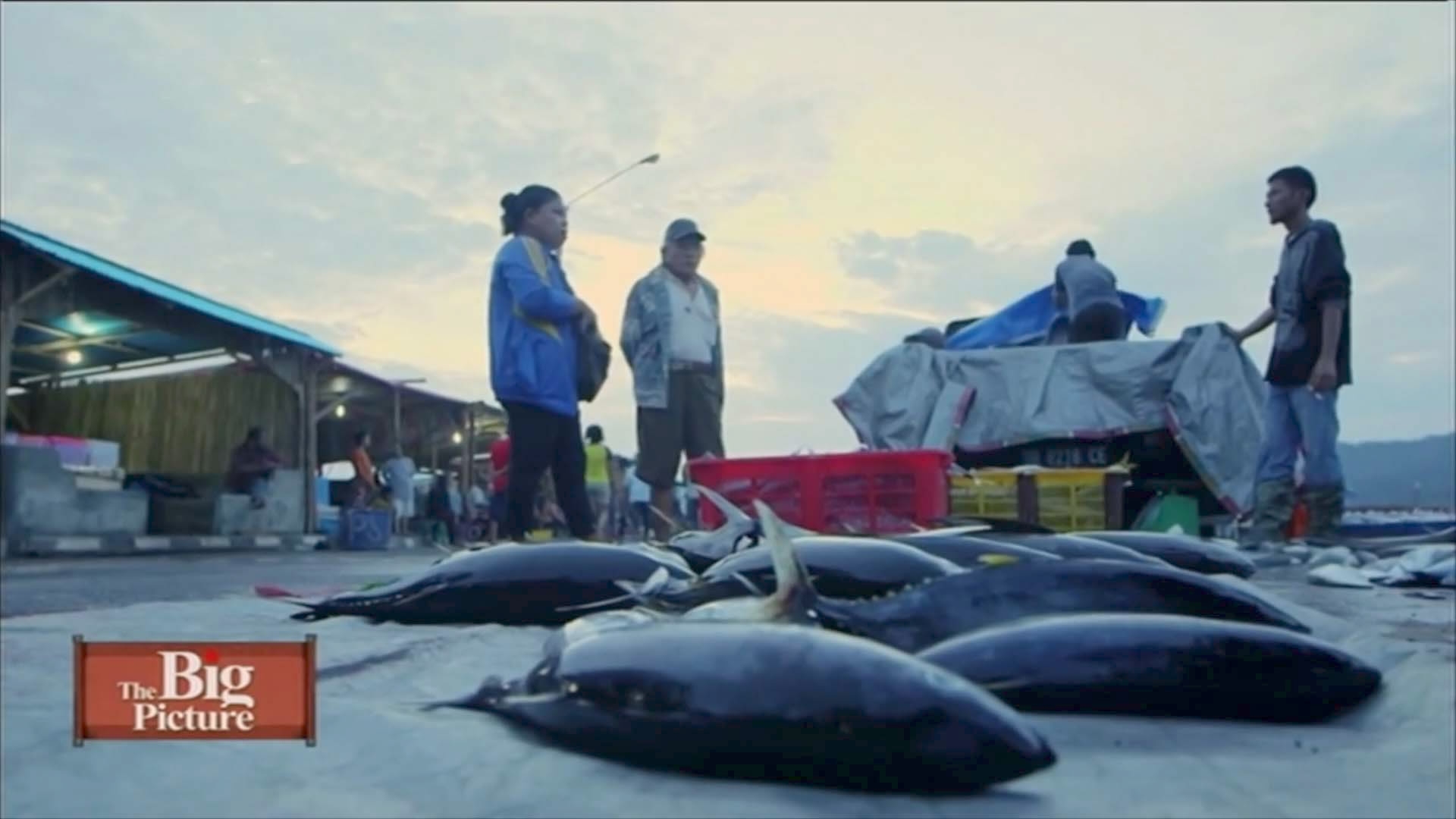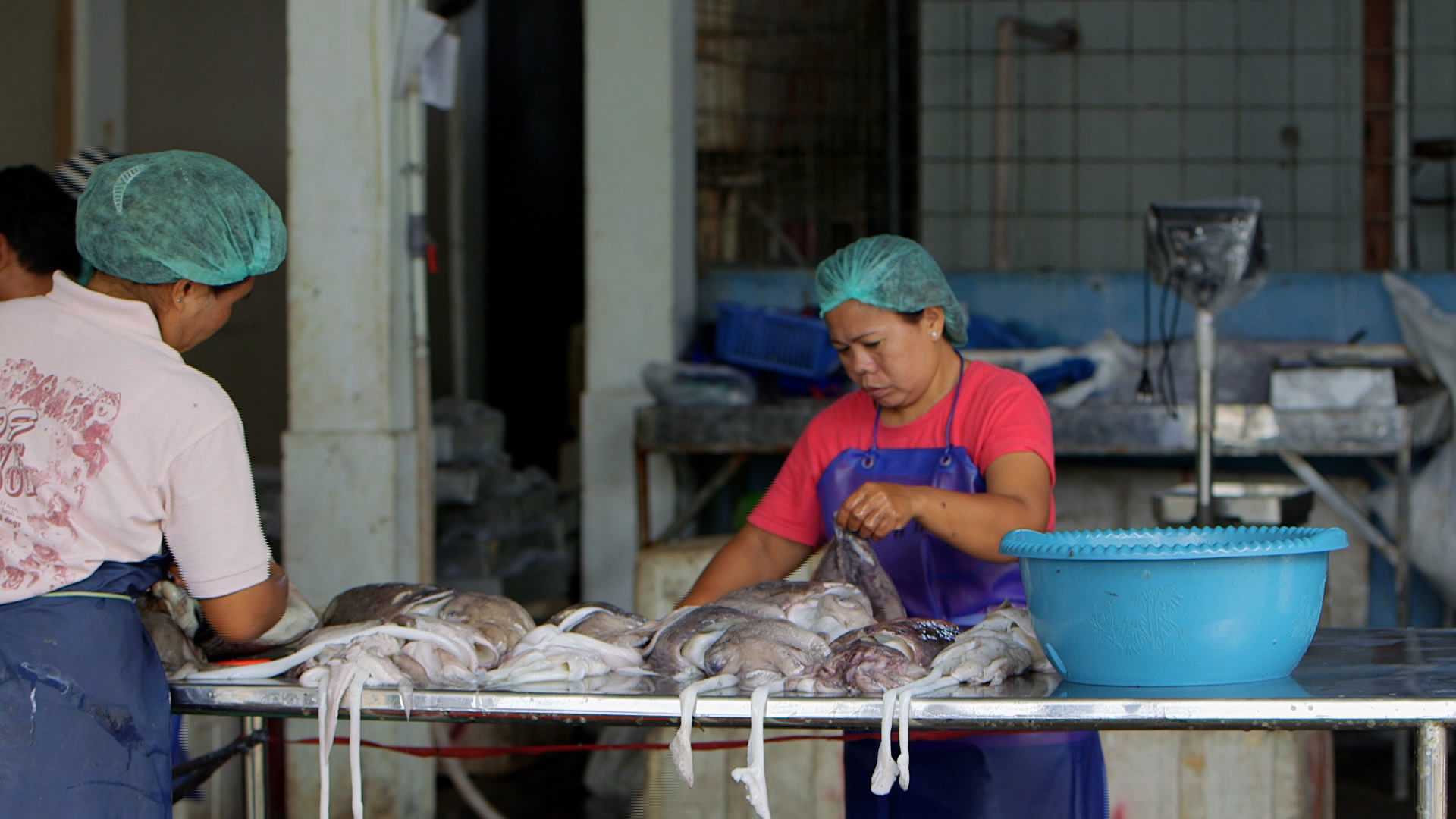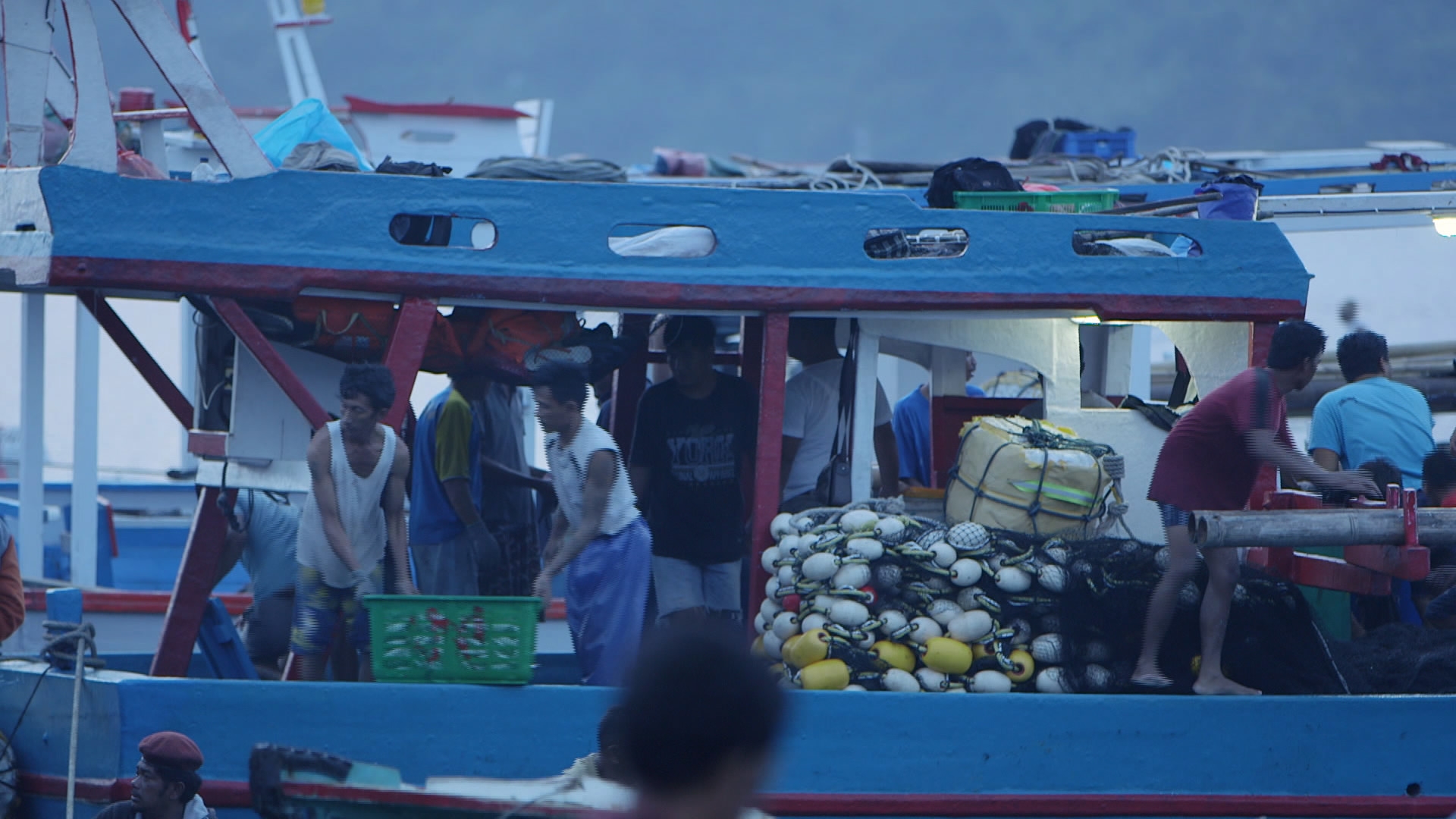
China
17:20, 24-Sep-2017
The Big Picture: Overfishing in the world's largest archipelago
By CGTN's Silkina Ahluwalia

Indonesia is the world’s largest archipelago, with over 17,000 islands stretching across its coasts.
The oceans of Indonesia are renowned for their rich marine biodiversity. Underneath the crystal clear waters lie thousands of colorful fish species and thriving coral reefs.
But the beauty that Indonesia is famous for is rapidly changing. Experts are concerned, as nearly 90 percent of the world fisheries have been driven to near extinction in the past decade.

Workers clean freshly-caught squid at a seafood factory in Bitung, North Sulawesi. /CGTN Photo
Workers clean freshly-caught squid at a seafood factory in Bitung, North Sulawesi. /CGTN Photo
“Our coral reef area that supplies fish to the residents living in small islands are now being marketed abroad... That results in overfishing, or as we call it destructive fishing, because the methods used are not environmentally friendly such as cyanide poisoning. That is one of the major causes that’s harming and eliminating biodiversity in our oceans,” says biodiversity expert, Basuki Rahmad.
The global demand for seafood has reached an all-time high. In the small Indonesian island of Bitung, locals rely heavily on fish for protein and one of the most popular catch is bluefin tuna.
The species is considered a top predator in the marine food chain and the growing demand is largely changing marine communities, affecting smaller species in the oceans such as sardines and anchovies.
However, that isn’t the only reason Indonesia's oceans are being depleted. Illegal fishing has played a huge role in the destruction of the country’s biodiversity.

Fishermen prepare to auction off their catch of the day in Bitung, North Sulawesi. /CGTN Photo
Fishermen prepare to auction off their catch of the day in Bitung, North Sulawesi. /CGTN Photo
The Minister of Maritime Affairs and Fisheries estimates a total loss of nearly 3 billion US dollars a year from illegal fishing. Eko Djalmo Asmadi leads his team every single day out to the sea, in search of boats engaging in illegal activities.
Boats entering from Thailand, Vietnam and the Philippines are a common sight and it’s become increasingly difficult to monitor them as they have started to use Indonesian flags and employ Indonesian crew to deceive local authorities.
“The fishing industry is crucial for Indonesia’s economy. As we know, two-thirds of the country is made up of oceans. That’s the reason why we are very strict when it comes to illegal fishing. We are hoping that the industry will grow even further now that foreign vessels are being heavily monitored,” says Asmadi.
The Indonesian government is working to seek support from the United Nations, to declare unregulated fishing as a transnational organized crime.
Apart from that, the importance of educating traditional fishermen to obtain sustainable ways of fishing could help protect Indonesia’s ecosystem.
4373km


SITEMAP
Copyright © 2018 CGTN. Beijing ICP prepared NO.16065310-3
Copyright © 2018 CGTN. Beijing ICP prepared NO.16065310-3